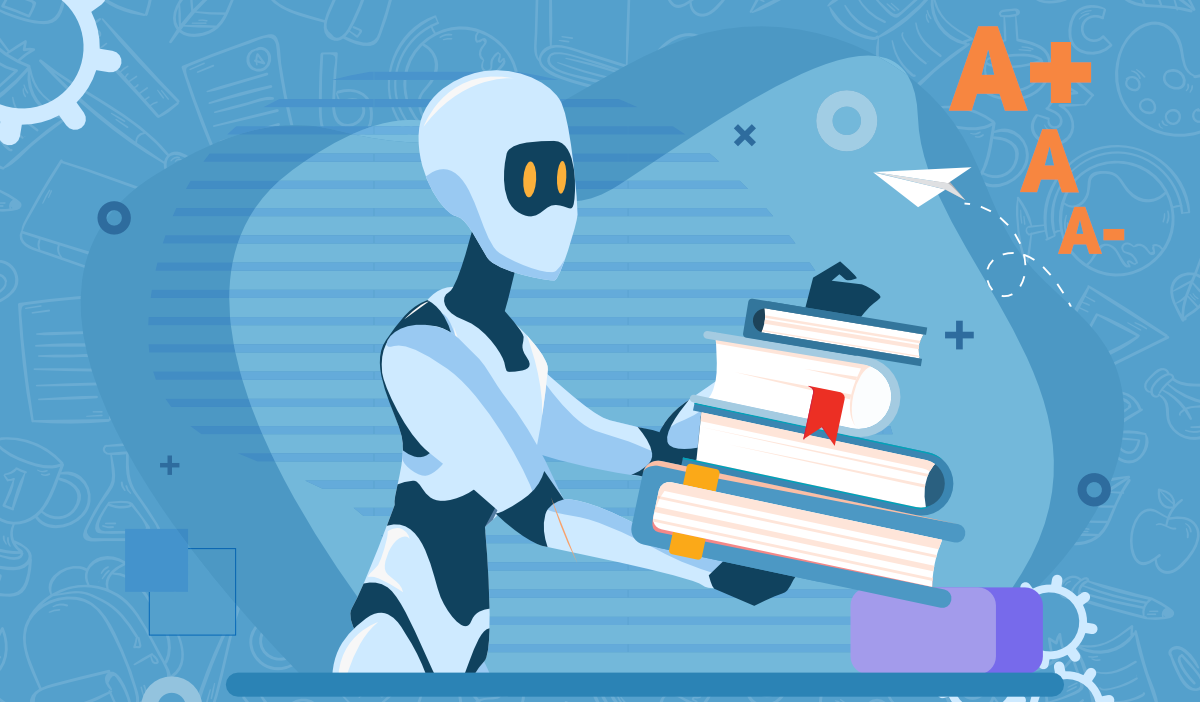6 Ways Artificial Intelligence Will Change Education in the 2020s
Last Updated :
11 Mar, 2024
Artificial Intelligence (AI) promises to change each and every aspect of human society. Be it in the form of automatic parking systems, mobile check deposits, social media feeds or countless other technologies that we interact with on a daily basis – Artificial Intelligence is practically everywhere. And pretty soon, it will completely reshape the academic world.

Already, educational procedures globally have transformed to integrate different applications of AI. With learning material accessible through smartphones and tabs – students now don’t have to rely on conventional books. Meanwhile, online institutes are emerging throughout the globe, creating whole new opportunities for people to learn without leaving their homes.
But as the world adapts automation for greater proficiency, education in the near future will be something completely different than it is today.
1. Automation of Grading Will Free Up Teacher’s Time
Teachers in modern academic settings spend a great bit of their time in administrative duties such as grading the students. However, technology can help in automating this task, leaving teachers with more time to spend on educating their pupils. Moving forward, software that can grade written answers and essays will also be implemented in educational institutions. This means that not only will the teacher be able to better utilize hours they spend grading quizzes, but any complaints of unfair grading by bias teachers will also become redundant. School administration board will be another department that will transform through AI as processing and classification of paperwork become automated.
2. Personalized Learning Will Cater to Student’s Individual Needs
We live an era of personalization. Everything from our Netflix recommendations to the ads we receive on Facebook is based on our personal preferences. In fact, even the retail business has become much more personalized due to AI.
In the same spirit, AI empowers educators to address the individual needs of students from the start rather than identifying them throughout the semester. This gives teachers ample time to help students. Software like Brightspace Insights predicts and forecasts students at risk, so the instructors could assist them while they’re learning.
By having access to student’s data in advance, teachers can craft personalized learning plans for their pupils. Rather than using a one-size-fits-all approach, this system works to the individual strengths of each student. Since AI and Machine Learning are proficient in identifying patterns that normally escape the human eyes, these technologies can help determine which students will thrive by reading assigned material and which prefer the lecture form.
3. AI Will Help in Identifying Gaps in Learning
Teachers have to maintain a certain pace to cover the syllabus in a short span of time. This inevitably creates gaps in their lectures and instructional material which leaves many students confused.
The academic world might finally have the solution to this problem with assistance from AI. Students will be able to engage in an intelligent, personalized conversation with a program and get instant feedback to clear up their concepts without depending on the instructor. The same program can also alert the instructor about gaps in learning so they may get the students up to speed.
4. Smart Content Will Be Used More Prevalently
Companies like Cram101 and JustThatFacts101 use AI to help students to learn more efficiently. The former breaks down textbook content into a more understandable “smart” guide that includes multiple choice practice tests, flashcards and chapter summaries. The latter highlights important bits of the books and creates chapter-specific summaries that are cataloged and made available on platforms like Amazon.
Smart Content is being utilized in a number of educational institutions. Likewise, it is also applied by websites to attract relevant visitors. “For us, smart content means creating an experience based on past behavior of the visitor, ” explains Content Manager of EMUCoupon “This includes factors such as location, language, demographics and device type.”
In the academic context, this concept includes customizable learning interfaces and digital learning guides. Some of these platforms provide interactive content, feedback, exercises, and thorough assessments. Instructors can benefit from these platforms by creating customizable agendas and content that’s easily accessible to the students.
As smart content gets even smarter, simulations and advance self-assessments will be integrated into this technology.
5. Online Education Will Continue to Grow
AI would remove international boundaries from education. Already, online education is more widespread than ever before. A recent study concluded that over six million American students are currently enrolled in distance education. As AI continues to transform education, more and more students will prefer to enroll in digital classes. Meanwhile, governments of developing countries will invest in AI-empowered online education to make high-quality education more accessible in rural areas.
6. Facial Recognition Might Come into Play
In China, schools have begun to identify students through facial scans thus eliminating the need for Student IDs. Once they’re in the classroom, a camera scans students’ faces every 30 seconds to determine whether they’re paying attention or not.
If not, the parents and teachers are notified. Of course, this application of AI remains extremely controversial with critics calling it a form of surveillance. Although one cannot expect face-scanning cameras in the schools of London and Chicago any time soon, this system might be replicated across China.
Conclusion: Education As We Know it Will Change
Although we’re not at a point where AI robots are replacing human teachers, machines will play a huge role in classrooms going forward. Technology will collaborate with teachers to create a system where students learn faster, better and with increased efficiency. AI will take some tasks off the teachers’ hands, allowing them to focus elsewhere.
With AI grading students, developing a personalized curriculum, identifying gaps, creating smart content and making education more accessible –the teachers will become coaches or facilitators. They will guide students in the right direction while AI lights the way.
Like Article
Suggest improvement
Share your thoughts in the comments
Please Login to comment...